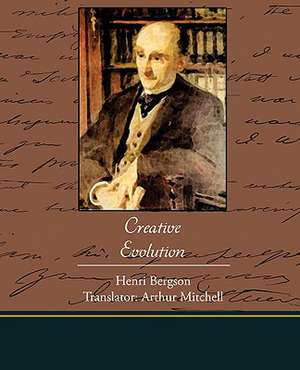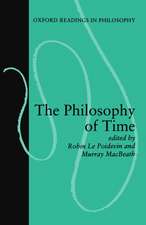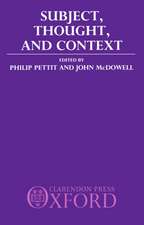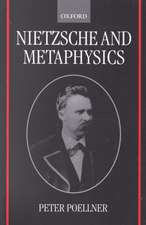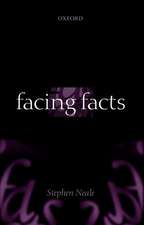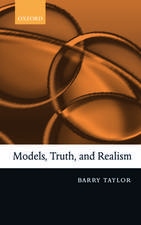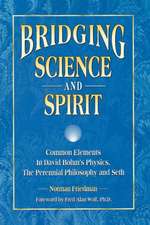Creative Evolution
Autor Henri Bergsonen Limba Engleză Paperback – 3 noi 2009
| Toate formatele și edițiile | Preț | Express |
|---|---|---|
| Paperback (9) | 73.21 lei 6-8 săpt. | |
| CreateSpace Independent Publishing Platform – | 87.53 lei 3-5 săpt. | |
| CREATESPACE – | 127.34 lei 3-5 săpt. | |
| Taylor & Francis Ltd. – 23 dec 2024 | 230.76 lei 3-5 săpt. | +17.26 lei 4-10 zile |
| – | 73.21 lei 6-8 săpt. | |
| Digireads.com – 31 dec 2010 | 94.50 lei 6-8 săpt. | |
| Indoeuropeanpublishing.com – 7 ian 2023 | 116.17 lei 6-8 săpt. | |
| Book Jungle – 3 noi 2009 | 191.86 lei 6-8 săpt. | |
| Book Jungle – 6 apr 2009 | 192.07 lei 6-8 săpt. | |
| Book Jungle – 7 iun 2009 | 192.07 lei 6-8 săpt. | |
| Hardback (2) | 200.37 lei 6-8 săpt. | +51.26 lei 4-10 zile |
| Taylor & Francis – dec 2022 | 409.70 lei 3-5 săpt. | +51.26 lei 4-10 zile |
| Indoeuropeanpublishing.com – 6 ian 2023 | 200.37 lei 6-8 săpt. |
Preț: 191.86 lei
Nou
36.71€ • 38.43$ • 30.56£
Carte tipărită la comandă
Livrare economică 31 martie-14 aprilie
Specificații
ISBN-10: 1438528175
Pagini: 286
Dimensiuni: 191 x 235 x 15 mm
Greutate: 0.49 kg
Editura: Book Jungle
Notă biografică
Henri Bergson (1859-1941) was born in Paris, the year Darwin's Origin of Species was published. Initially drawn equally by the sciences and philosophy, at the age of eighteen Bergson won a prestigious prize for solving a mathematical problem. Choosing philosophy, he attended the École Normale Supérieure and the University of Paris before working as a school teacher in Angers and Clermont-Ferrand while completing his doctorate at the University of Paris in 1889. He worked for eight years at the Lycée Henri-IV before taking a position as Chair of Greek and Roman Philosophy at the Collège de France in Paris 1900. His weekly lectures soon attracted beyond capacity crowds, and his visits abroad to England and the United States filled venues and reportedly caused the first-ever traffic jam on Broadway in New York City. Bergson engaged with some of the leading contemporary thinkers, including a famous debate with Einstein in 1922 over the nature of time. He influenced Marcel Proust, Thomas Mann, and the philosopher William James, and was a pioneering figure in the Modernist intellectual movement of the early twentieth century.
Descriere
This outstanding new translation, the first for over a hundred years, brings one of Bergson’s most important and ambitious works to a new generation of readers.
Cuprins
Recenzii
"An updated translation of Bergson’s most significant and most misunderstood book was long overdue. … Landes – who has previously translated Maurice Merleau-Ponty’s Phenomenology of Perception, another, notoriously elegant yet challenging text – more than meets these requirements. … There is no doubt that this new translation will become an absolute reference, not least because Landes has included illuminating passages from the critical apparatus of the most recent French edition of L’Evolution créatrice. But Landes’s most remarkable improvement is in his recreation of the effortless flow of Bergson’s philosophical prose." - Emily Herring, Times Literary Supplement
"This new translation by Donald Landes captures the mesmerizing work that turned Henri Bergson into one of the century’s most provocative thinkers—with expert annotations, correspondence and additional material by influential thinkers from William James to Gilles Deleuze." - Jimena Canales, University of Illinois, Urbana-Champaign, USA
"Henri Bergson, who personally oversaw the translation of all his books into English, would be delighted by this new edition of his greatest work. Donald Landes’s translation is exquisite and the extensive editorial notes are indispensable for the serious study of Creative Evolution." - Alexandre Lefebvre, University of Sydney, Australia
"This splendid new translation provides an exceptional, scholarly tool for serious specialists as well as all readers interested in Bergson’s work. It will swiftly become the definitive reference text for all Anglophone Bergson scholarship." - Christina Howells, University of Oxford, UK
"A major event in post-Kantian philosophy. Featuring a lucid introduction, helpful translator’s notes, and a judicious selection from Arnaud François’s illuminating critical dossier, this fine translation of Creative Evolution means that English-language Bergson scholarship has begun to gain the serious editions of his texts that it deserves." - Mark Sinclair, Roehampton University, UK
"This superb translation will introduce a new generation to Bergson. Landes's cogent introduction and editorial notes and the accompanying dossier of correspondence, reception and commentaries not only situates Creative Evolution in relation to Bergson's oeuvre, but also to the myriad scientific and philosophical sources informing his thought. An outstanding achievement." - Mark Antliff, Duke University, USA
"This wonderful new translation of Bergson’s classic Creative Evolution is warmly welcomed, as are the rich introduction, comprehensive editorial notes, and thoughtful selection of commentaries. There are many improvements to the original translation published over a century ago." - Emily Thomas, Durham University, UK
"Creative Evolution is essential reading today. To translate it well requires a serious engagement with Bergson’s entire body of work, sustained philosophical attention, a feel for context (including discoveries in thermodynamics) and, most importantly, enormous care. Happily, this is what Donald Landes offers us here." - Suzanne Guerlac, University of California, Berkeley, USA
